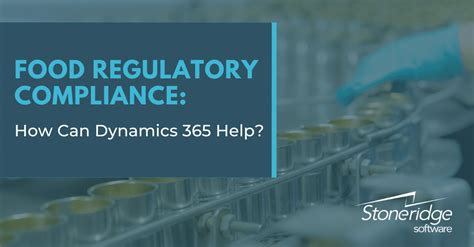Navigating the Complex World of Food and Beverage Industry Regulations and Compliance
The food and beverage industry is a dynamic and highly regulated sector. Maintaining compliance with a complex web of regulations is crucial for businesses of all sizes, impacting everything from production and distribution to marketing and labeling. Failure to comply can lead to significant financial penalties, reputational damage, and even legal action. This comprehensive guide explores key aspects of food and beverage industry regulations and compliance.
Understanding the Regulatory Landscape
Navigating the regulatory landscape requires a thorough understanding of the various agencies and laws governing the industry. These often vary by location, adding another layer of complexity. Key areas include:
-
Food Safety Regulations: These regulations are paramount, focusing on preventing contamination and ensuring the safety of food products for consumers. Key aspects include Hazard Analysis and Critical Control Points (HACCP) systems, Good Manufacturing Practices (GMP), and stringent hygiene protocols. Understanding and implementing these protocols are fundamental to operational success and legal compliance.
-
Labeling and Packaging Regulations: Accurate and truthful labeling is critical. Regulations dictate information that must be displayed, such as ingredients, nutritional facts, allergen warnings, and country of origin. Mislabeling can result in significant fines and consumer mistrust.
-
Ingredient and Additive Regulations: The use of specific ingredients and additives is often strictly controlled. Regulations specify permissible ingredients and their maximum allowable levels, aiming to protect consumer health and prevent fraud.
-
Marketing and Advertising Regulations: Marketing and advertising claims must be truthful, substantiated, and compliant with regulations that prevent misleading consumers. False advertising can severely damage a brand's reputation.
-
Environmental Regulations: The food and beverage industry generates significant waste and has an environmental footprint. Compliance with environmental regulations regarding waste disposal, water usage, and energy consumption is essential for sustainability and legal compliance.
Key Compliance Strategies
Effective compliance requires a proactive and multi-faceted approach:
-
Develop a Robust Compliance Program: A comprehensive program should incorporate all relevant regulations, assign responsibilities, and establish clear procedures for monitoring and responding to potential violations. Regular audits and internal reviews are crucial.
-
Invest in Training: Employees at all levels need thorough training on relevant regulations and their implications. Ongoing training ensures everyone understands their responsibilities and contributes to a culture of compliance.
-
Maintain Detailed Records: Accurate and complete records are vital for demonstrating compliance with regulatory bodies during inspections. This includes production records, ingredient sourcing, quality control data, and labeling information.
-
Stay Updated on Regulatory Changes: Food and beverage regulations are constantly evolving. Regularly monitor updates and amendments to ensure ongoing compliance. Subscription to industry newsletters and participation in professional development activities can assist in this crucial area.
-
Seek Expert Guidance: Consult with legal and regulatory professionals to ensure compliance. Their expertise can help navigate the complexities of the regulatory environment and provide tailored solutions to specific challenges.
The Importance of Proactive Compliance
Proactive compliance is far more effective and cost-efficient than reactive measures. By implementing robust systems and procedures, businesses can avoid costly penalties, protect their reputation, and build consumer trust. A culture of compliance should be embedded in the organizational DNA, demonstrating a commitment to both legal adherence and ethical business practices. Investing in compliance is not merely a legal requirement, but a strategic imperative for long-term success in the food and beverage industry.
